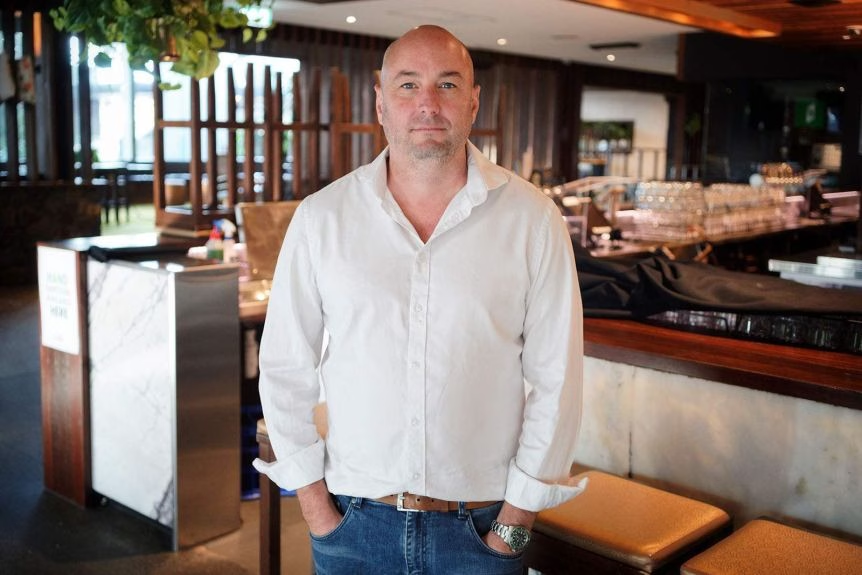Queensland hospitality operators are taking the unprecedented step of purchasing residential properties to house staff amid the state’s housing crisis, which shows no real signs of easing.
Rob Comiskey, director of Comiskey Group, revealed his company now owns six houses dedicated to staff accommodation—a strategy born of necessity rather than choice as the group scales toward 1,000 employees.
“We probably have six houses that our chefs are located in, and that’d be for the short term, but that gives them a way to get here,” Comiskey told the Food & Hospitality Queensland trade show during a panel discussion over the weekend.
The company charges staff just $100 per week for fully furnished accommodation, including electricity, internet, and maintenance—a financial loss that Comiskey views as essential to recruitment and retention.
The housing crisis has become so acute that it’s directly costing operators senior talent too. Comiskey recounted losing a manager who pulled out just one week before his start date.
“We waited for a month, and he pulled out because he can’t get a house, can’t get his kids into school,” Comiskey said. “That’s the only reason he’s not starting.”
The recruitment challenge extends beyond housing. Of Comiskey Group’s 150-200 chefs, approximately 50 now come from overseas—a fundamental shift in the operating model that Comiskey says is essential to sustainability.
“I don’t think you can operate any business now at any scale without that,” he said. “If we were to shut that down, we’d have to shut our restaurants down.”
Employers investing in culture
Dap & Co’s Andrew Baturo, who operates nine venues including Walters Steakhouse and Libertine, acknowledged recruitment remains difficult but noted a positive shift: employers are now investing heavily in workplace culture.
“More and more we’re treating our staff the way we treat our guests, and it’s not what you do for them, it’s how you make them feel,” Baturo said.
He’s also adapted his recruitment criteria, prioritising attitude over existing skills when hiring younger workers and investing in training and development programs.
“We’re looking at the younger generation and looking at their attitude, as opposed to their skill level, and working on coaching them as much as we can,” Baturo said.
Comiskey emphasised the importance of recruitment speed in a competitive market where candidates have multiple options.
“If someone gives you a resume, we always say it’s first in best dressed. Interview that person ASAP, do their reference checks ASAP, and get them on board,” he said. “They’ve got opportunity now, and sometimes it’s about speed.”
Culture-building initiatives have become significant line items in operator budgets. Comiskey’s group spends heavily on Christmas parties and uses videos of past events as recruitment tools.
“We spend a massive amount on our Christmas parties, because that’s what staff seem to enjoy,” he said. “We play that video to them when they start, or when they’re thinking about it. It’s a small thing, but it also helps with that culture.”
The investment in culture is paying dividends in terms of retention. Comiskey noted that his company is “seen as a preferred employer” because of the growth opportunities it offers, including the ability for staff to transition between different types of venues—from food and beverage to accommodation—within the same organisation.
“We’ve got guys who were glassies now running some of the biggest hotels in Australia, and they’ve got that skillset straight from us,” he said.
Focus on productivity
Bernie Hogan, Chief Executive of the Queensland Hotels Association, observed a slight shift in the employment market, with less turnover and a marginal move back toward an employer’s market. However, he cautioned that backpackers and working holiday makers remain scarce in Southeast Queensland, though they’re still present in regional areas.
Hogan emphasised that recruitment challenges should prompt operators to focus on productivity rather than simply filling positions.
“We’ve actually been so fixated on getting a body instead of getting the right body who can actually do the job,” Hogan said. “Train them and expect a standard. It’s not good enough to sort of half-ass it and turn up and expect me to pay you a full day’s wage.”
He argued that setting and maintaining high standards ultimately benefits the entire industry by building a culture of excellence.
“Expect them to step up to a standard. The old saying is the standard that you walk past is one you accept,” Hogan said. “It’s about your productivity. Yes, you can love your staff, but expect them to step up to a standard.”
The changing recruitment tactics—encompassing overseas hiring, housing provision, rapid onboarding, culture-building, and career development—represent a shift in how Queensland hospitality businesses operate.
“It’s a multi-faceted approach: bringing them from within up, bringing them in from the side, from overseas, whatever, housing—it’s five or 10 different ways,” Comiskey said. “And it’s expensive.”







